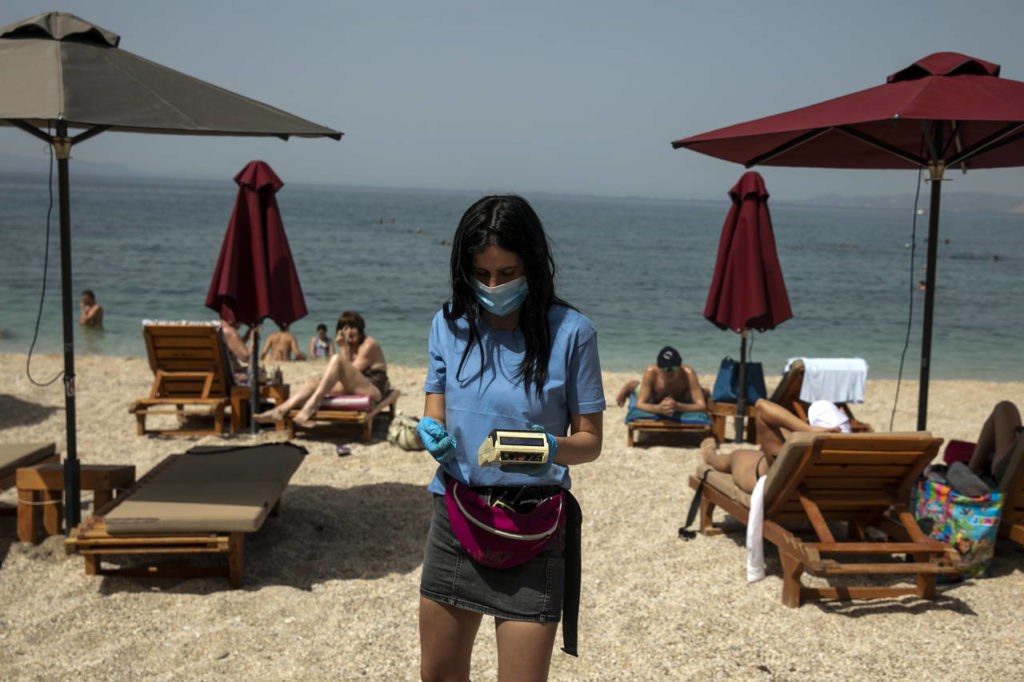Just before the summer holiday period, as EU member states relax limitations, there is a risk that people will not adhere to the recommended measures still in place, warns the European Centre for Disease Control and Prevention (ECDC) in a new risk assessment.
In its risk assessment, published on Thursday, ECDC analyses the risk of COVID-19 for the general population and those with risk factors for severe disease, according to the current state of knowledge on the virus. It also analyses the likelihood of a rise in infections in the coming weeks as a consequence of lifting stricter community-level physical distancing measures.
“The pandemic is not over,” said ECDC Director Andrea Ammon. “While we observe decreasing trends across Europe, continuous efforts are still needed to limit the spread of the disease. Everyone’s contribution makes a difference. It is important to comply with recommendations regarding physical distancing and maintain high standards of hand hygiene and respiratory etiquette”.
While decreasing trends in disease incidence are being observed in the EU/EEA and the UK overall, some member states are still reporting community transmission. In addition, the information available from sero-epidemiological studies suggests that the adaptive immunity of populations remains low.
The lockdown measures have collectively reduced transmission and, as of 9 June 2020, the 14-day incidence in the EU/EEA and the UK overall has declined by 80% since the peak on 9 April. The initial wave of transmission has passed its peak in all countries apart from Poland and Sweden.
Although stringent physical distancing measures have reduced transmission, they are highly disruptive to society, both economically and socially, ECDC writes. At the present time, just before the summer holiday period, as member states relax limitations, there is a risk that people will not adhere firmly to the recommended measures still in place due to ‘isolation fatigue’.
Therefore, continuous efforts are needed to ensure that the remaining physical distancing and infection prevention control measures continue be observed to limit the spread of the disease. The pandemic is not over, and hypothetical forecasting indicates a rise in cases is likely in the coming weeks.
Essential precautions
At this stage, the following measures are essential to maintain a reduced level of transmission and avoid resurgence, according to ECDC:
- A robust monitoring framework to closely monitor the epidemiological situation
- An expanded testing strategy aiming for comprehensive testing of all individuals displaying symptoms compatible with COVID-19.
- A framework for contact tracing, based on extensive testing, active case finding, early detection of cases, isolation of cases, quarantine and follow-up of contacts, possibly supported by electronic tools and applications.
- Long-term sustainable implementation of essential non-pharmaceutical interventions, irrespective of transmission rates, and the ability to amend strategies rapidly in response to indications of increased transmission.
- Reinstatement or introduction of further measures could be considered at local or regional level, or for specific population groups, depending on transmission patterns.
- Protection of the most vulnerable and at-risk populations is of paramount importance as they have suffered most of the burden from this pandemic in terms of morbidity, mortality and need for healthcare.
- A strong risk communication strategy should remind citizens that the pandemic is far from over. People need to be aware that the public health measures to limit the spread of the virus will continue to impact the way we move, work and travel, and our leisure activities for the foreseeable future.
Four key risk communication messages are proposed by ECDC:
- This is a marathon, not a sprint.
- We must not drop our guard.
- We all need to adjust to a ‘new normal’.
- Together, our actions give us the power to control the spread of the virus.
Since the outbreak of the virus and as of 9 June 2020, 7 069 278 cases of COVID-19 have been reported worldwide, including 405 587 deaths. EU/EEA countries and the UK reported 1 444 710 cases (20% of all cases), including 169 207 deaths (42% of all deaths).
The Brussels Times

